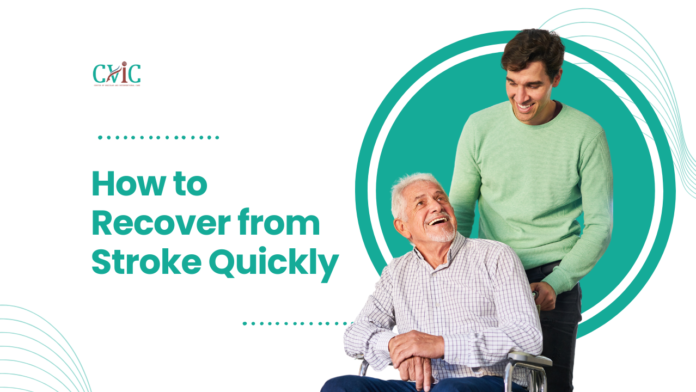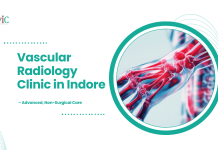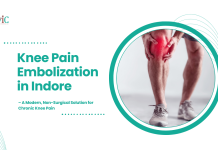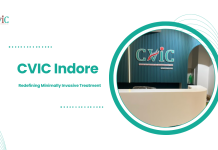Recovering from a stroke is a challenging yet achievable journey that requires a mix of perseverance, expert guidance, and tailored strategies. While the timeline for recovery varies from person to person, certain evidence-based methods can speed up rehabilitation, enhance physical and mental health, and improve quality of life. Let’s explore actionable ways to recover from a stroke quickly, combining medical advice, practical strategies, and motivational insights.
Understanding Stroke Recovery
Stroke recovery involves the brain’s ability to rewire itself (neuroplasticity) and restore lost functions. The recovery process typically begins immediately after medical stabilization and continues over weeks, months, or even years. Early and consistent intervention plays a crucial role in maximizing recovery outcomes.
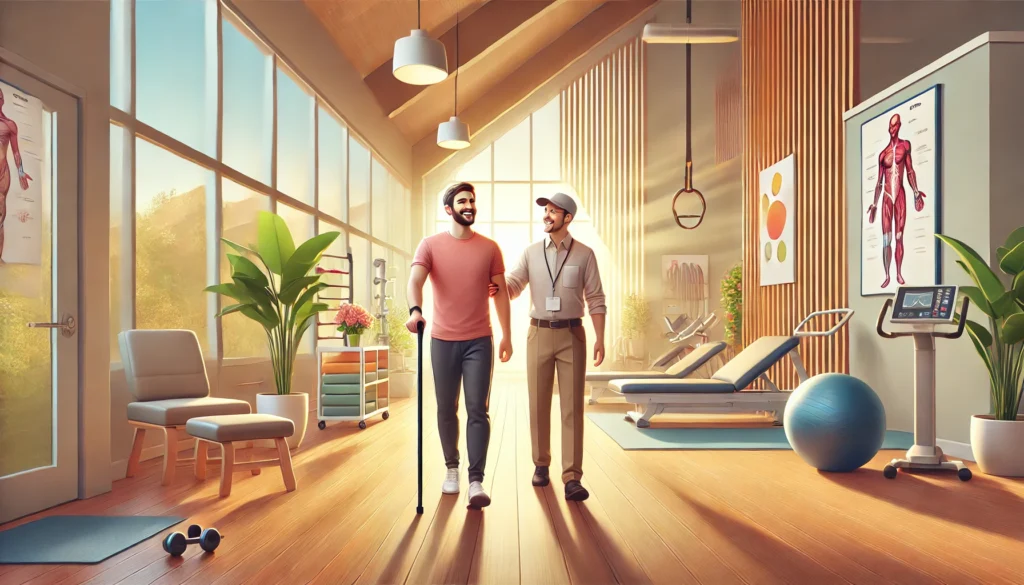
Key Strategies to Recover from Stroke Quickly
1. Early Medical Intervention
Quick action after a stroke can significantly affect recovery time. Following these steps is critical:
- Seek immediate medical care.
- Follow prescribed medications to prevent further strokes.
- Work closely with your healthcare team to plan rehabilitation.
Also Read: Expert Gastrointestinal Surgery Services in Indore: Comprehensive Care for Digestive Health
2. Physical Therapy: Regain Mobility and Strength
Physical therapy is one of the most effective ways to regain lost motor functions. Techniques include:
- Stretching and Strengthening Exercises: Improves flexibility and muscle tone.
- Functional Electrical Stimulation (FES): Helps restore muscle movement.
- Constraint-Induced Movement Therapy (CIMT): Focuses on using the affected limb to stimulate brain rewiring.
3. Occupational Therapy: Restore Daily Living Skills
Occupational therapists help stroke survivors relearn essential skills, such as:
- Dressing, grooming, and cooking.
- Using assistive devices to enhance independence.
- Modifying the home environment to reduce fall risks.
4. Speech Therapy for Communication and Swallowing Issues
Strokes can cause aphasia (difficulty speaking) or dysphagia (trouble swallowing). Speech therapy focuses on:
- Strengthening oral muscles.
- Using alternative communication methods, such as picture boards or apps.
- Practicing repetitive language exercises.
Also Read: What is the Best Treatment for Brain Stroke? Top Options Explained
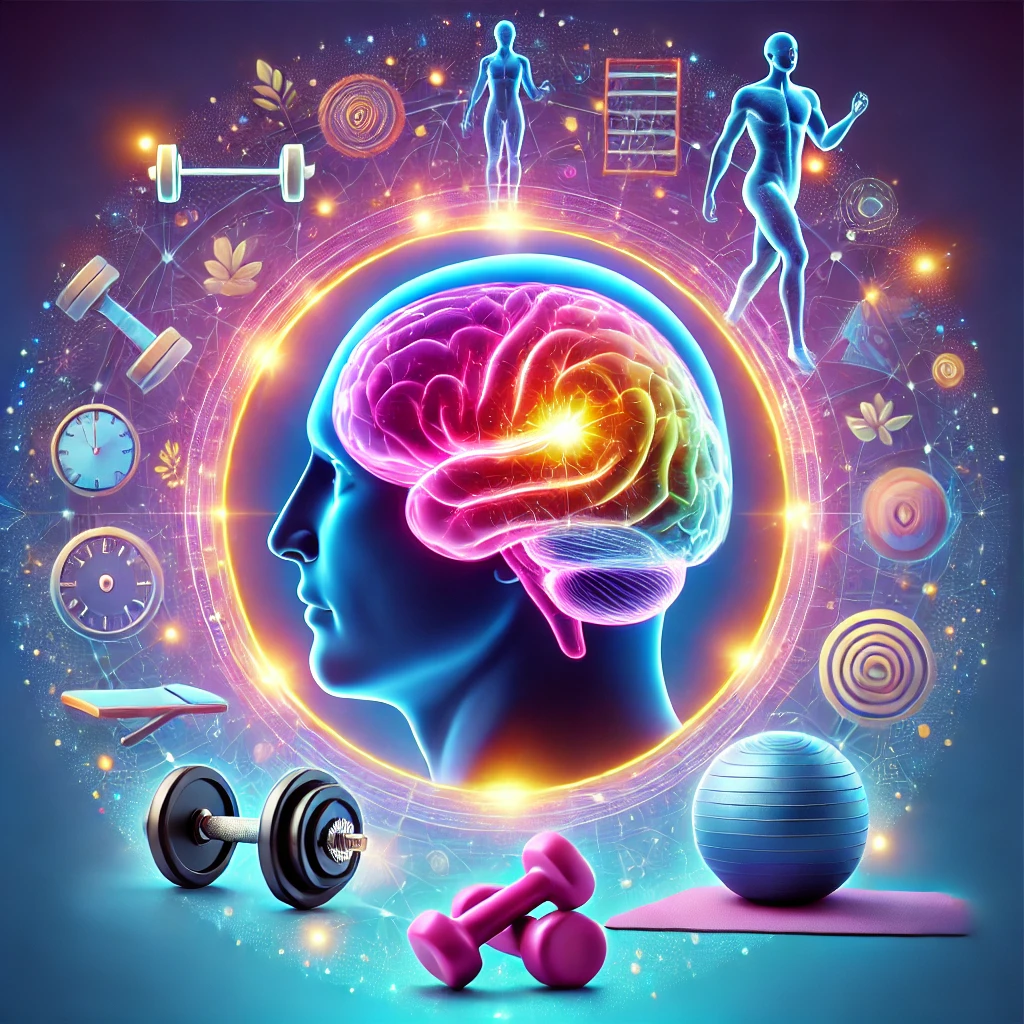
5. Adopting a Stroke Recovery Diet
Proper nutrition aids brain healing and overall recovery. Include:
- Omega-3 Fatty Acids: Found in salmon, walnuts, and flaxseeds, these improve brain health.
- Leafy Greens: Rich in antioxidants that support cell repair.
- Lean Protein: Promotes muscle rebuilding. Avoid high-sodium and processed foods, which can raise blood pressure and increase stroke risk.
6. Engage in Mental Health Support
Emotional well-being is as critical as physical recovery. Techniques to manage post-stroke depression and anxiety include:
- Joining support groups.
- Seeking counseling or therapy.
- Practicing mindfulness and meditation.
7. Use Technology-Assisted Therapies
Advanced technologies enhance rehabilitation, such as:
- Robotic-Assisted Therapy: Supports repetitive motion exercises.
- Virtual Reality Games: Improves motor and cognitive skills in a fun, interactive way.
Lifestyle Changes for Faster Stroke Recovery
1. Commit to Regular Exercise
Low-impact activities like walking, swimming, or yoga improve cardiovascular health and muscle strength. Aim for consistency over intensity.
2. Quit Smoking and Limit Alcohol
These habits increase the risk of another. Smoking cessation programs and moderation in alcohol consumption are essential for long-term health.
3. Get Adequate Sleep
Quality sleep promotes brain repair. Develop a sleep routine by:
- Sticking to a consistent bedtime.
- Creating a dark, quiet sleeping environment.
- Avoiding caffeine and screens before bed.
4. Stay Socially Engaged
Social interactions stimulate mental health and reduce isolation. Participate in community events, or spend quality time with friends and family.
Also Read: Effective Treatment and Intervention for Stroke: A Comprehensive Guide
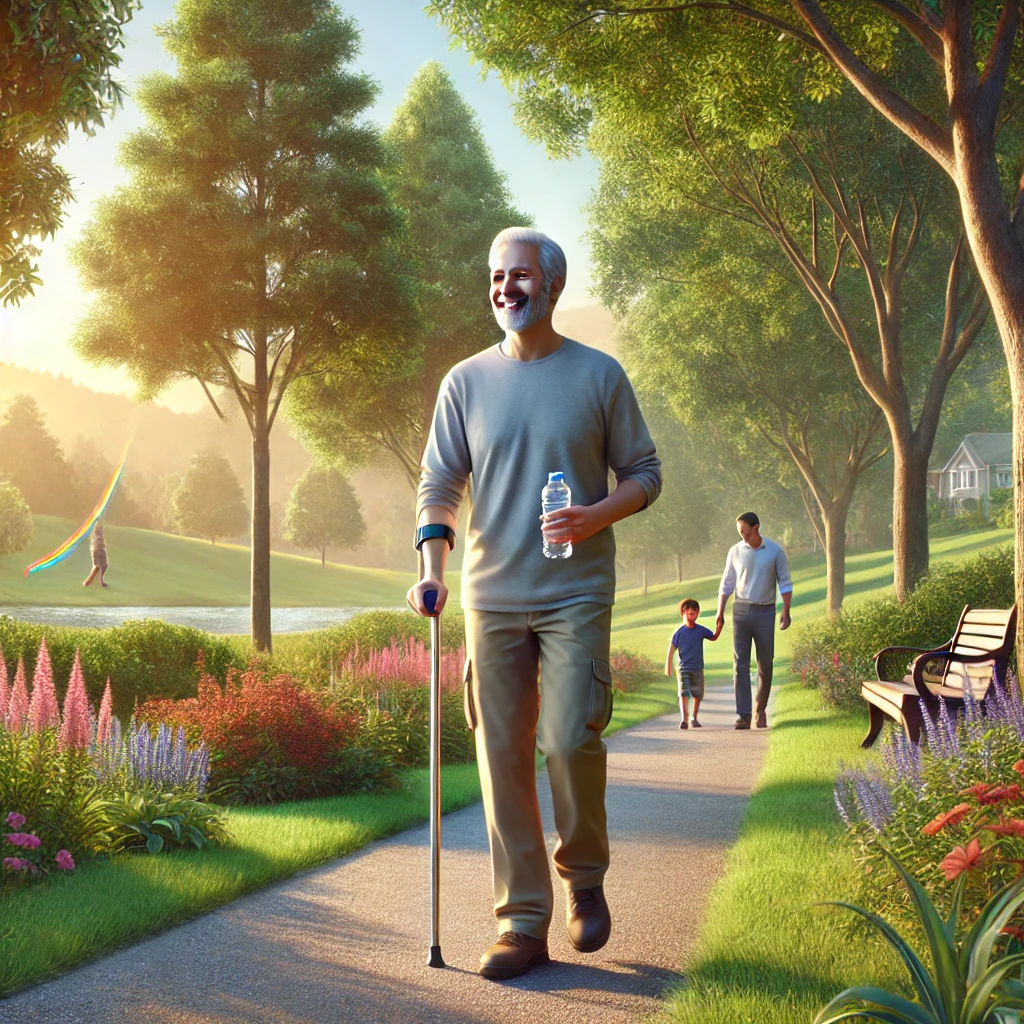
Tips for Caregivers Supporting
- Educate Yourself: Learn about stroke recovery stages to provide better support.
- Be Patient: Progress can be slow and non-linear.
- Celebrate Small Wins: Recognizing improvements, no matter how small, boosts morale.
How to Recover from Stroke Quickly: The Role of Consistency
Consistency in rehabilitation efforts is a cornerstone of rapid recovery. Whether it’s attending therapy sessions, sticking to a healthy diet, or practicing daily exercises, persistence ensures steady progress.
Frequently Asked Questions
What is the fastest way to recover from a stroke?
The fastest recovery involves early medical care, consistent physical and occupational therapy, a healthy diet, and support for mental well-being.
Can brain function return to normal after a stroke?
Yes, neuroplasticity allows the brain to adapt and recover. However, the extent of recovery depends on stroke severity and rehabilitation efforts.
How long does it take to recover from a stroke?
Recovery timelines vary but often span weeks to years, depending on the individual and type of stroke.
What exercises help with stroke recovery?
Exercises like walking, stretching, and functional activities are beneficial. Consult a therapist for personalized guidance.
Can lifestyle changes prevent a second stroke?
Yes, quitting smoking, maintaining a healthy weight, and managing conditions like hypertension can reduce the risk.
Is it possible to recover completely from a stroke?
While some individuals achieve full recovery, others may experience lingering effects. Comprehensive rehabilitation maximizes recovery potential.
Conclusion
Recovering from a stroke quickly requires a blend of medical intervention, structured rehabilitation, lifestyle adjustments, and emotional support. By adopting these effective strategies, survivors can rebuild their lives, reclaim independence, and achieve better health outcomes.

